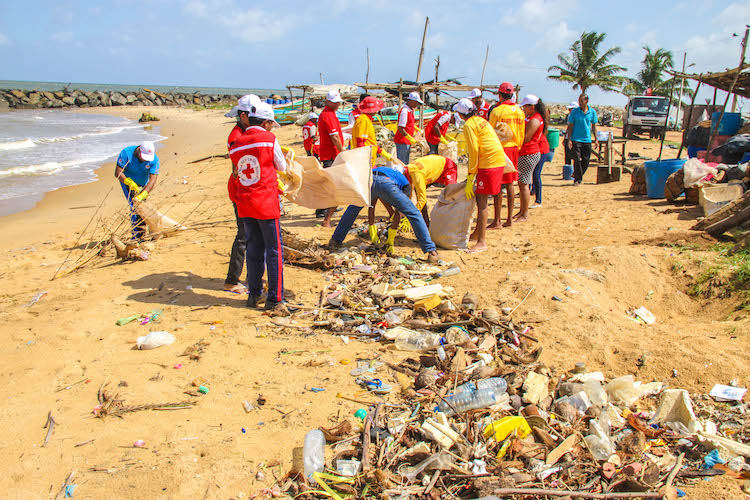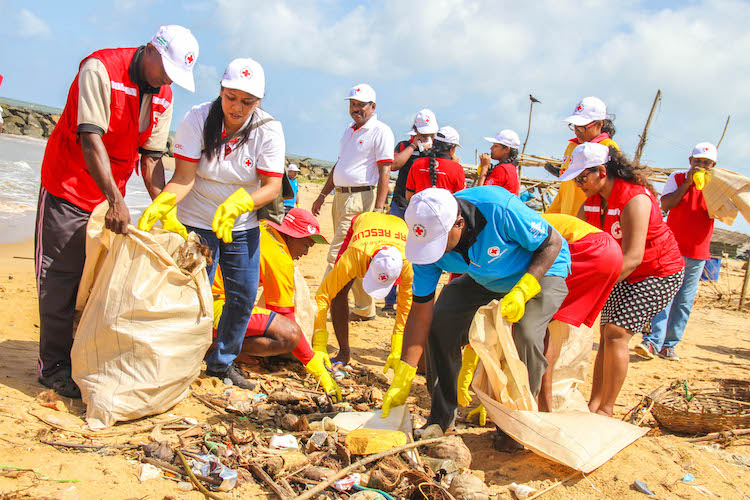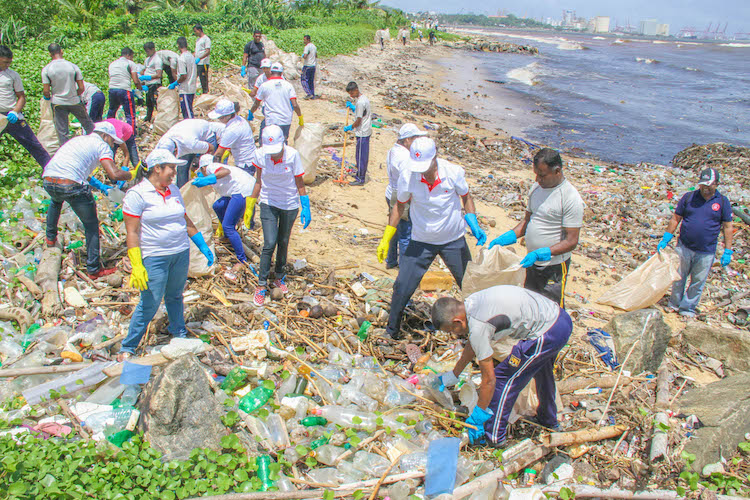Cleaning up Sri Lanka’s coastline to safeguard the environment
07/06/2016 – Colombo, Sri Lanka: In view of World Environmental Day 2016 the Sri Lanka Red Cross in partnership with the Ministry of Mahaweli Development & Environment and the Coast Conservation and Coastal Resource Management Department and the Sri Lanka Military launched a National Beach Cleaning Campaign across Sri Lanka.
Accordingly our volunteers engaged in coast cleaning campaigns. The main event took place at the Beach Park in Negombo with the participation of over 100 volunteers.
Another campaign also took place at Crow Island in Mattakkuliya where staff and volunteers from all organization took part in cleaning activities. Volunteers and staff also took steps to educate people who are frequenting coastal areas of the importance of safeguarding this resource for the future generations.
Director General of Sri Lanka Red Cross Neville Nanayakkara spoke about the importance of safeguarding the environment for the future generation.
Meanwhile the Head of Country Office of the International Federation of Red Cross & Red Crescent Societies Igor Dmitryuk also spoke about how important it is to safeguard the environment.
The coastal region in Sri Lanka has been increasingly subject to pollution during the last few decades. According to a recent study the underlying drivers for pollution in the coastal region are a population concentrated on the coast, and increased development activities such as tourism and industries.
The report by the Bay of Bengal Large Marine Eco System Project says that despite, local authorities are now receiving technical and financial assistance from the National Solid Waste Management Support Centre (NSWMSC) of the Ministry of Local Government and Provincial Councils, many local authorities still lack adequate facilities for safe disposal of solid waste. Dumping sites are usually open sites, and sometimes in low-lying marshes in the coastal area.
Lack of sites for use for waste disposal has been a major impediment in resolving the issue of solid waste management. Numerous impacts of waste disposal that have been identified as: reduction in flood retention areas; pollution of wetland habitats, pollution of surface and ground water, creation of malodorous environments facilitating insect/mosquito breeding and other impacts on health.
Some local authorities, NGOs and the private sector have initiated waste treatment practices — such as composting of waste at household level, recycling of waste materials, incineration and landfills.









